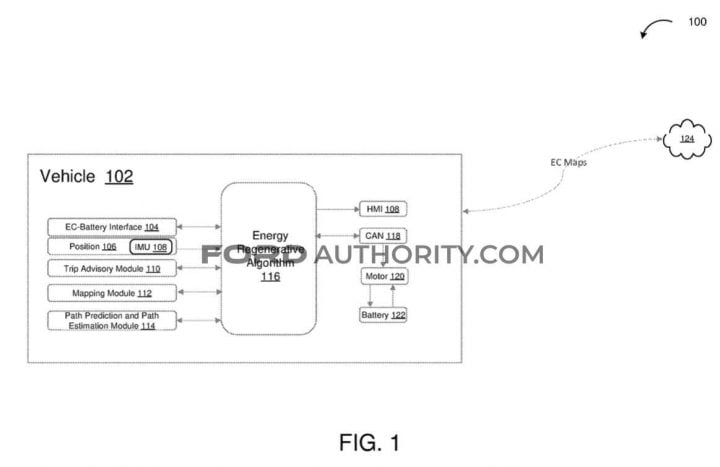Ford Motor Company is taking regenerative braking technology to the next level with a newly filed patent for systems that could predict and apply regenerative braking automatically. This innovation builds upon Ford’s previous advancements in adaptive regenerative braking, offering smarter and more efficient energy recovery systems for both electric vehicles (EVs) and hybrids. Filed in June 2023 and published in December 2024, the patent outlines an exciting vision for Ford’s future vehicles.

Regenerative braking is already a standout feature of EVs, allowing vehicles to recover energy while slowing down, saving wear on brake pads and extending battery range. Ford’s new system aims to enhance this further by leveraging GPS and internal measurement unit (IMU) data. Using information about the driver’s journey—such as the availability of charging stations, elevation changes, and road conditions—the system can determine when and how to optimize regenerative braking. For instance, it could switch from using the electric motor to utilizing regenerative energy when the vehicle encounters steep descents or other suitable conditions.

This cutting-edge technology could be a game-changer, especially for drivers in hilly or mountainous regions. Regenerative braking on steep grades already provides significant energy recovery, but Ford’s predictive system would harness this power more effectively, maximizing efficiency and extending range. For hybrids, it could mean fewer stops for fuel, while EV drivers could enjoy more miles per charge—a clear advantage in today’s competitive electric market.

Ford’s continuous innovation in regenerative braking showcases its commitment to enhancing the driving experience and sustainability. As EV and hybrid technology evolve, these advanced systems could set Ford apart by offering smarter energy management and greater convenience for drivers. Future Ford vehicles equipped with this technology could redefine efficiency on the road.

